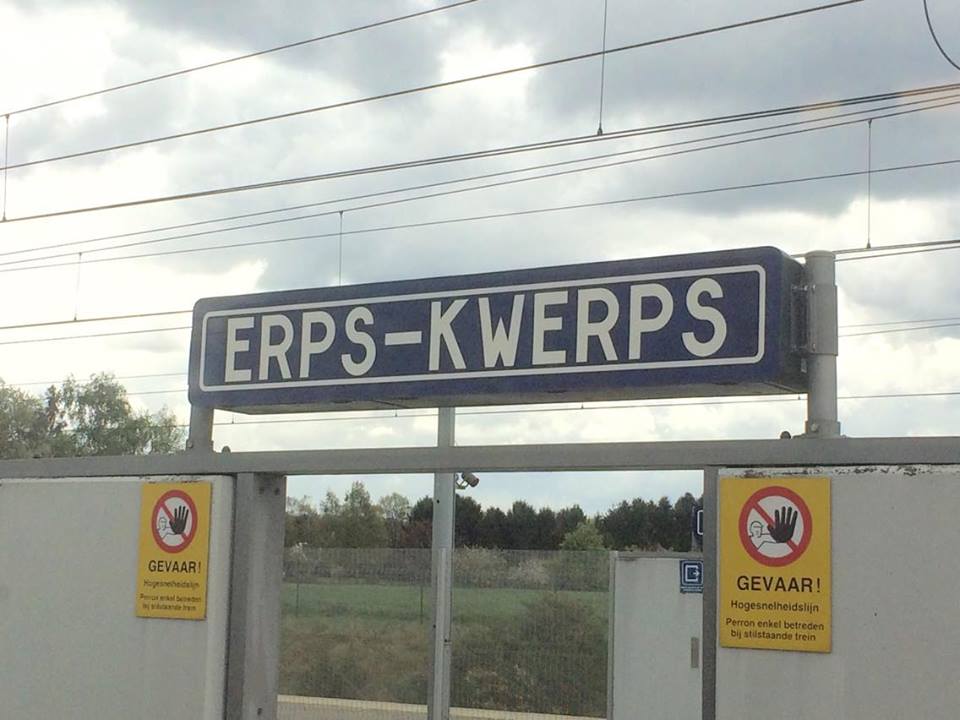Speaking Dutch in Belgium
More tips for speaking Dutch outside the Netherlands! (Good luck speaking Dutch in Belgium.)
Welkom terug, Dutch-speakers. If you read Part I of Speaking Dutch in Belgium, then you’ll already be well on your way to passing for a Vlaming as you empty your geldbeugel on De Meir. But beware: there are many pitfalls that can out you as someone who learned your Dutch in the Netherlands (apart from the accent). Here are some tips to help you fit in. Allee mannekes!
Breuken in de keuken
A large portion of household accidents happen in the kitchen. So do a large number of language accidents. Seemingly the Dutch and the Flemish couldn’t agree on what various kitchen appliances should be called. The big white cold thing which in the Netherlands is called a ‘koelkast’ (or ‘ijskast’) is known in Belgium as a ‘frigo’. Frigo comes from the French le frigo.
And what might you find in the frigo? While looking for some tasty Dutch ‘jam’ you might instead come across some lekker Belgian ‘confituur’. Confituur likewise comes from the French la confiture. (You may see a pattern emerging.)
What’s that? Your confituur is too cold from sitting too long in the frigo? You want to warm it up? (Run with me on this.) Then why not stick it in the ‘magnetron’ or, as they say in Flanders, the ‘microgolfoven’?

If your Belgian host should enter the kitchen at this point to find out just what the hell you’re doing with the microgolfoven, it might be polite to remark that the kitchen is very ‘schoon’. While you might think you’re complimenting the cleanliness of the kitchen, a Belgian will understand ‘schoon’ as ‘mooi’.
And so ends our tour of the kitchen. Phew…
Odd sayings in Dutch and Flemish
Although Flemish and Dutch are mutually understood, certain sayings and traditions differ. A Vlaming who is under stress might be graphically described as ‘sweating water and blood’, or ‘water en bloed zweten’. A Netherlander, on the other hand, might be even more imaginatively described as ‘sweating carrots’, or ‘peentjes zweten’.
Why carrots? One theory is that the stress is so great that sweating feels like forcing little carrots out your skin. Another theory is that the phrase was once ‘pintjes zweten’, or ‘sweating pints’, which makes slightly more sense.
The Flemish have an interesting tradition on April Fools’ Day. Children will cut out paper fish and stick them on people’s backs. When this saucy ruse is discovered, the word ‘aprilvis’ (April fish) is proclaimed by all parties, to much hilarity. This game is also played in French-speaking communities, where it is called poisson d’avril.

And finally…
No analysis of the Dutch-Flemish language rift would be complete without a look at the word ‘poepen’. As pointed out by a helpful reader last time, ‘poepen’ has a very different meaning depending on which side of the Dutch-Belgian border you say it on.
To be brief, ‘poepen’ in the Netherlands means ‘to poop’. In Flanders, ‘poepen’ means the same as ‘vrijen’.
The potential fallout from a misunderstanding is terrifying.
Enjoying our articles? Don’t forget to join our Facebook group! 😉



I used to have a Flemish colleague who used the word ‘poep’ for bum, which I thought was amusing =)